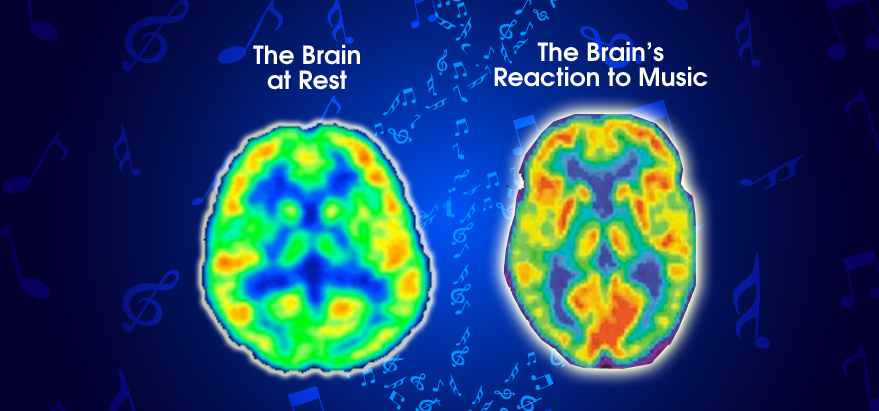The biochemistry of body’s reaction to sounds
How do you feel listening to a particular musical sound? Do you feel depressed or motivated? How many times do you listen to a particular song? What makes you do so? Have you ever wondered how music affects our mood? Some people react in different ways to a particular sound. Some are already addicted to music of a specific genre. Some people can’t meditate without listening to a particular song.

credit: Hearing tracker
No wonder one of my students solves mathematical problems by gently producing a mixture of sounds through his hands on top of his reading table as he reads. For me, when I listen to a track of music called “playing by heart” by Yanni, I feel like driving a car (it activates my driving mood). I like reading and doing sober reflection using Yanni’s music such as nice to meet you, desire, deliverance, and among others. Some people shed tears when they listen to Enya’s songs.
The question is why would music affect our mood? Some can’t stand a particular music without featuring in a dance floor. In my own definition of music, it means the mixing of sounds to create an effect. Music sometimes serves as a therapy to some psychological disorder. Even the mew cry of a pussy cat has been used in recalling or awakening a patient in coma. Some men will on hearing the moaning of a woman, attain an orgasm……this may sound funny but it is a simple truth. Hearing the roar of a lion, one could feel unsecured and feel to either run or fight back.
Sound recognition and reaction is part of our daily life. Some people tend to fall deeper in love with their spouses after listening to some romantic songs or blues. No wonder such music goes with that tag! In fact the class of music most time corresponds to it effect on the listeners. A dirge such as the song of Jim Reeves makes the listeners to be depressed, reminding them of the loss of their dear ones. The cattle or sheep listen to the sound command of their herder or shepherds respectively due to the neurological interpretations the brains down to their actions. The effects of sounds on humans and other animals are enormous. Let’s pause a little to give a biochemical explanation of what leads to our reactions on hearing certain sounds.
Various sounds have a specific neurotransmitter it releases and depending on the type released, this will then trigger a specific reaction of the body. No wonder the chickens have various sounds to denote a particular situation, maybe predators (danger) or for the availability of foods.
There are two major types of neurotransmitters, excitatory or inhibitory neurotransmitters. The two types of neurotransmitters exist for the sake of regulation. While the excitatory does the activating or stimulatory, the inhibitory does the calming effect. That is why we sense some music as cool music, then some as hot music. Music is said to be hot when it triggers the exocytosis of stimulatory (excitatory) neurotransmitters while the cool ones trigger the secretion of calming or inhibitory neurotransmitters.
The existence of these two neurotransmitters brings about self-control. The maintenance of balance in the two neurotransmitters is essential, if not there would have been more cases of making love on the party dance floor like we hear in some news. This party dance floors love making is as a result of the sound that triggered high secretion of dopamine. Dopamine is antagonized by serotonin in most cases, if not there would have been the cases of some men breaking neighbor's doors on hearing the moan of his love partner during love making at night. The serotonin is what actually keeps the man back, cuddles him and make him to sleep off till day break……this sounds funny, right? But it’s the real thing anyway.
Depending on the nature of the sounds heard, the body has a mechanism of releasing the suitable neurotransmitters. Some music may induce sleep in some persons. Why would ordinary music send us to bed? The music that triggers sleep does that by secreting a neurotransmitter called serotonin (5-hydroxy tryptamine). This neurotransmitter also is responsible for making a dirge what it is. This is also what is released when a chicken calls its chicks for food.
))
Dopamine molecule credit: @henrychidiebere
Sound does not only cause the brain to cause effects on the body but it can impact directly to the brain itself. A research on the reaction of the brain to sound using Mozart’s Sonata showed that the sound can affect our spatial reasoning (the ability to reason about objects in 3 dimensions and make reasonable conclusions about those using a little amount of information) in a very positive way. This was later called the Mozart effect.
The research investigated also the electrical discharge pattern of the areas of the brain after listening to the Mozart sonata for a period of about 10 minutes in comparison to a short story for the same amount of time. The result was that listening to the Mozart sonata caused increase in the power of beta spectrum of electroencephalogram of the right and left temporal, and the regions of the right frontal of the brain. A conclusion was drawn that certain sound can raise bilaterally, the beta power of the precuneus region in the brain.
Conclusion
Nature has put within us a many regulatory molecules that help us regulate our actions. The regulation is involuntary and this explains why some individual can’t control themselves in some situations especially when sounds are involved. The neurotransmitters are in most cases our guide, they may guide us well or misguide us. In a nutshell, the neurotransmitters are what make an interpretation of sound to be physical.
References
- Neurotransmitters -wikipedia
- Mozart effect -ncbi
- serotonin -wikipedia
- this is your brain on music by Daniel Levitin, Review on Wikipedia
If you write STEM (Science, Technology, Engineering, and Mathematics) related posts, consider joining #steemSTEM on steemit chat or discord here. If you are from Nigeria, you may want to include the #stemng tag in your post. You can visit this blog by @stemng for more details. You can also check this blog post by @steemstem here and this guidelines here for help on how to be a member of @steemstem.

))
))
))

Being A SteemStem Member
That was an interesting read :)
thanks dear
Binarual Beat 2.5hz activates natural opioids to be released great for headache relief.
Is there any evidence that by exposing your brain cell receptors to the same stimulus substance over and over can indeed make the receptor less likely to be stimulated? Does this explain why after hearing the same song you once loved, over and over, you would get "numb"?
Awesome article!Keep it up!
most times some ligands (the neurotransmitters) may bind to the receptors without eliciting a reaction. Hence if they occupy the available binding sites of the receptors without dissociating and no reaction is created, they won't allow others to bind. This results to insensitivity in the listener and subsequently loose interest in the music.
It is really interesting the power that sounds have and the effect they can have on us. Excellent post, greetings!
Thanks buddy for stopping by
Wow! Amazing article. Music is such a blessing. I love our noises can trigger memories and emotions. Great to see some research as to whats going on. Thank you
it depends on the music